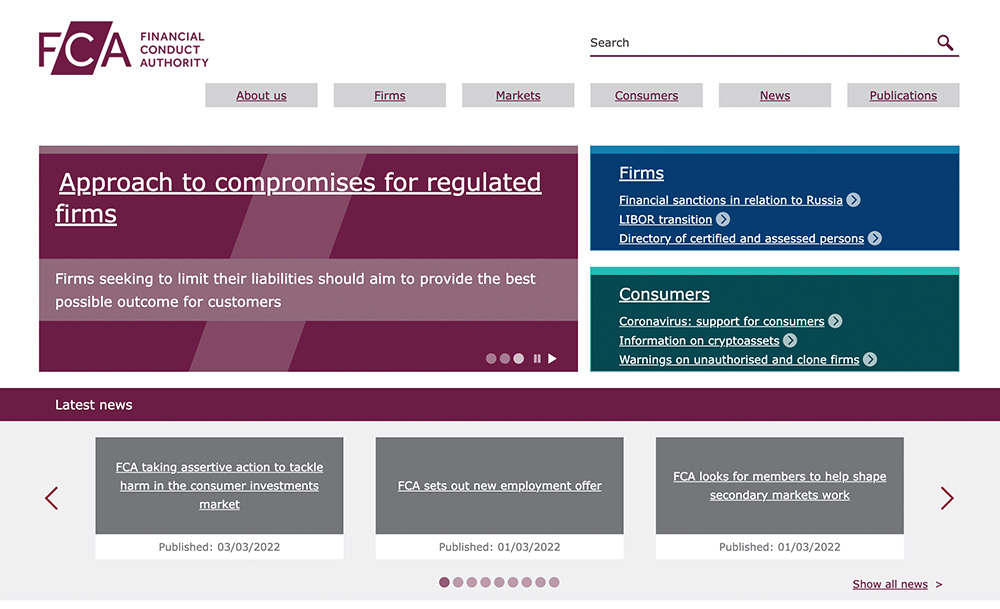What is a bridging loan broker?
How much do they charge? Want to understand why it may be worthwhile using one? All your questions are answered right here.
A bridging loan broker is a professional who helps individuals and businesses secure bridging loans. Bridging loans are short-term loans used to cover the gap in a person or company's financing. Finance brokers aim to either save you money or make you money, helping you find the best bridging loan for your needs and ensuring you get the best deal possible.

Pros and cons of using a bridging loan broker
When considering a new bridging loan, a few important variables must be considered, and whether you use the services of a bridging loan broker should be one of the first questions you ask yourself. There are several pros and cons to using a bridging loan broker, which we'll explore here:
Advantages of using a bridging loan broker
The biggest pro is that they can help you find the best deal on a bridging loan. They know the market inside out and can point you towards lenders who offer the best rates and terms. Brokers have extensive reach across multiple sources of funds from speciality lenders, family offices and private investors and can help you find the best lender for your needs. They can also help borrowers avoid common pitfalls associated with bridging loans.
Disadvantages of using a bridging loan broker
The main con of using a bridging loan broker is that they typically charge a fee for their services. This can range from a few hundred pounds to several thousand pounds, so it's important to compare quotes and ensure the anticipated fees will likely be offset by the savings made before you choose your bridging loan broker.
Suppose you're considering taking out a bridging loan. In that case, consult with a bridging loan broker first, as their advice and information will be given without any obligation to proceed with their services. Most reputable brokers will also offer you a full proposal without your commitment.
Top five reasons to use a bridging loan broker
- Brokers take care in understanding a borrower's exact circumstances so that they can match the requirements to the right lender
- Brokers have access to the whole of market (speciality lenders, family offices & private investors)
- Brokers know how to package up borrower's requirements in a way that multiple lenders will want to lend against
- Brokers drive down lender's rates by aiming to create competition between lenders
- Brokers can help borrowers sidestep common issues when seeking finance and assist with the entire application of the loan
What to look for in a bridging finance broker?
When looking for a bridging finance broker, it is important to find one who is reputable, experienced and can get you the right deal.
The broker's aim should be to provide you with a variety of options from different lenders so that you can access the best deal possible. They should also be able to work quickly and be extremely responsive to your queries to give you confidence that you'll be able to access the money you need as soon as possible.
It is also important to find a broker who understands your specific needs. They should be able to explain all the different financing options available to you and help you choose the best suited for your situation. They should also be able to answer any questions about the process so that you feel comfortable and confident moving forward.
What fees do bridging loan brokers charge?
Broker charges are common for financial service providers. What exactly will a bridging loan cost? It's difficult to answer definitively as it will vary based on the broker and the size of the loan, among other factors.
However, most brokers charge a fee for their services. This fee can be a percentage of the total loan amount, and it's not uncommon for that fee to be between 2% and 5%, or it may be a flat fee. Additionally, some brokers may also charge an application or processing fee.
What is an application fee?
An application fee is a fee charged by the broker at the point of a loan proposal or agreement in principle progressing to an application. It's charged to ensure that the applicant is serious about applying for the loan as the broker will not want to waste their resource on 'window-shoppers'.
Applications typically require one to two days of administration, depending on their complexity and the deal. The good news for the borrower is that it's also normal practice for the application fee to be refunded upon loan completion.
It is important to understand what fees will be charged before you work with a broker so there are no surprises. Every broker should be explicitly transparent and detail each of the fees or charges for the bridging loan in the loan proposal.
Can a broker help secure regulated and unregulated finance?
Although the bridging financing sector is a niche category within finance, it has several further subcategories, such as regulated bridging loans and unregulated bridging loans.
Whether a broker can help a borrower obtain a regulated or unregulated loan will depend on whether the broker or lender is authorised and regulated by the Financial Conduct Authority (FCA).
What's the FCA?
The FCA is the conduct regulator for around 51,000 financial services firms and financial markets in the UK. It is tasked with protecting consumers, supervising those operating within the UK financial markets, enhancing market integrity, and, lastly, enforcement.

Image: FCA Website as of 2022
Regulated bridging loans
A regulated bridging loan is generally secured against the borrower's main residence, while unregulated bridging finance can't be secured against the borrower's main residence.
Unregulated bridging loans
An unregulated bridging loan is not subject to FCA regulation. However, it may still be subject to other regulations, such as those from the Office of Fair Trading (OFT) or the Financial Conduct Authority (FCA).
As you discuss your requirements with the broker, if you intend to secure the loan against your home, then it's important to check with the broker in advance whether they can secure regulated finance. You can also search the FCA register for regulated companies here: https://register.fca.org.uk/
Should I go directly to a bridging loan lender?
Going directly to a lender has one main benefit—the borrower will not have to pay loan broker fees. The main cons of going directly to a lender are that the borrower will not have access to comparative quotes unless they approach multiple bridging lenders.
Approaching multiple lenders isn't for the faint-hearted; it can be a laborious, time-consuming process - especially for the uninitiated, who are unlikely to know which lenders suit their funding requirements.
Bridging lenders tend to prefer dealing with brokers as it's significantly less time-consuming for them. To be frank, most lenders don't meet UK consumers' expectations of customer service.
When should I talk to a bridging loan expert?
There are a few critical times when speaking to a bridging loan expert is advisable. These include:
- If you need to borrow money quickly
- If you need to borrow a large sum of money
- If you are not sure whether bridging finance is the right option for you
Bridging finance can be a useful way to get access to money quickly, but it is important to make sure that they are the right option for you.
Speak to an expert to learn more about how bridging loans could help you and the pros and cons of this type of finance. You may be surprised how much a bridging loan can help you achieve your financial goals.
Bridging finance solutions are short-term loans used to cover unexpected costs. They're used to bridge a gap in someone's funding. With this in mind, you should speak to a broker when you identify the need to obtain bridging finance.
Our team of bridging specialists can help you better understand your options, so why not schedule a free, no-obligation call?
Where can I find a list of bridging loan brokers to contact?
BridgingLoan.org.uk is a UK bridging loan broker and lender directory containing all the main companies operating in the UK market.

Bridging loan broker FAQs
Here are the most frequently asked questions about bridging loan brokers.
What's a whole of market bridging loan broker?
A whole of market bridging loan broker is an intermediary who can access loans from a wide range of lenders, both traditional and specialist. This gives the borrower the best chance of finding a competitive deal on a bridging loan.
Will brokers care about my credit history?
Bridging loans aren't typically lent based on the credit history or creditworthiness of the borrower because they are secured against a property, be it future property purchases or existing properties.
Is it faster to use a bridging finance broker or go directly to a lender?
When it comes to getting finance, there are a few different options available to you. You can go directly to a lender, use a bridging finance broker, or use a mortgage broker.
Each option has its own set of pros and cons, so it can be difficult to decide which is the best route for you but generally speaking, traditional mortgages take in excess of 6 weeks to complete whereas bridging loans can be completed in as little as 3 working days.
The differences between completion times via a broker or direct to lender really depends on your exact circumstances. However, as a general rule of thumb unless you already know a lender who will want to lend to you for your specific deal then a broker is more likely to be faster.
Are bridging finance brokers solely commercially focussed or residential, or can they be both?
They often can arrange both commercial lending for commercial property, general business finance and residential lending for residential property, enabling the borrower to release equity or buy an auction property before converting to a buy to let mortgage.
Do bridge loan brokers also offer development finance?
This is completely dependent on the finance broker in question. Some bridge loan brokers are specialist brokers, choosing to focus on bridging but others also arrange development finance. A quick check on the broker's website should clear up whether or not they do both.
What's the difference between a residential mortgage broker and a bridging finance broker?
In simple terms, a mortgage broker is someone who helps you find a loan to buy a house. A bridging loan broker is someone who helps you find a loan to buy a house before you sell your old house. Mortgage brokers, also known as mortgage advisors solely offer mortgage advice typically from high street lenders. This type of loan is not considered a short term secured loan as the term is normally 25 years.
14 questions to ask your bridging loan broker
After explaining your situation and your requirements, these are the top 10 questions you might want to ask your broker.
- Are you a whole of market broker?
- Do you arrange regulated or unregulated loans?
- How long does a bridging loan take to approve in principle?
- How long does a bridging loan take to complete?
- What are the criteria for a bridging loan?
- What is the average interest rate on a bridge loan?
- What is the likely interest on this bridging loan?
- Do you charge an arrangement fee?
- Do you charge an application fee?
- What are the total fees on this bridging loan?
- Will I need a solicitor for a bridging loan or can you provide dual representation?
- Will I need the services of an independent financial advisor to complete this loan?
- Do you need to complete an in-person valuation for the bridging loan or will it be a desktop valuation?
- How hard will it be to get a bridging loan?
Last thoughts
Arranging your bridging loan through a specialist broker or directly through a lender doesn't have to be a fraught decision. Our advice is, if you know of a lender who will likely be interested in your deal then approach them directly.
If you don't know the right lender for you then you have two options:
- Try approaching a broker and let them do the leg work for you sourcing agreements in principle and a no-obligation quote.
- Whilst the broker is doing their bit, you could also try approaching a few lenders and get a feel for the kind of deal you might achieve without the broker.
If you'd like a call with one of our bridging specialists then schedule a call. It's free, there's no-obligation and you'll gain instant access to a wealth of knowledge - we're ready to help.
